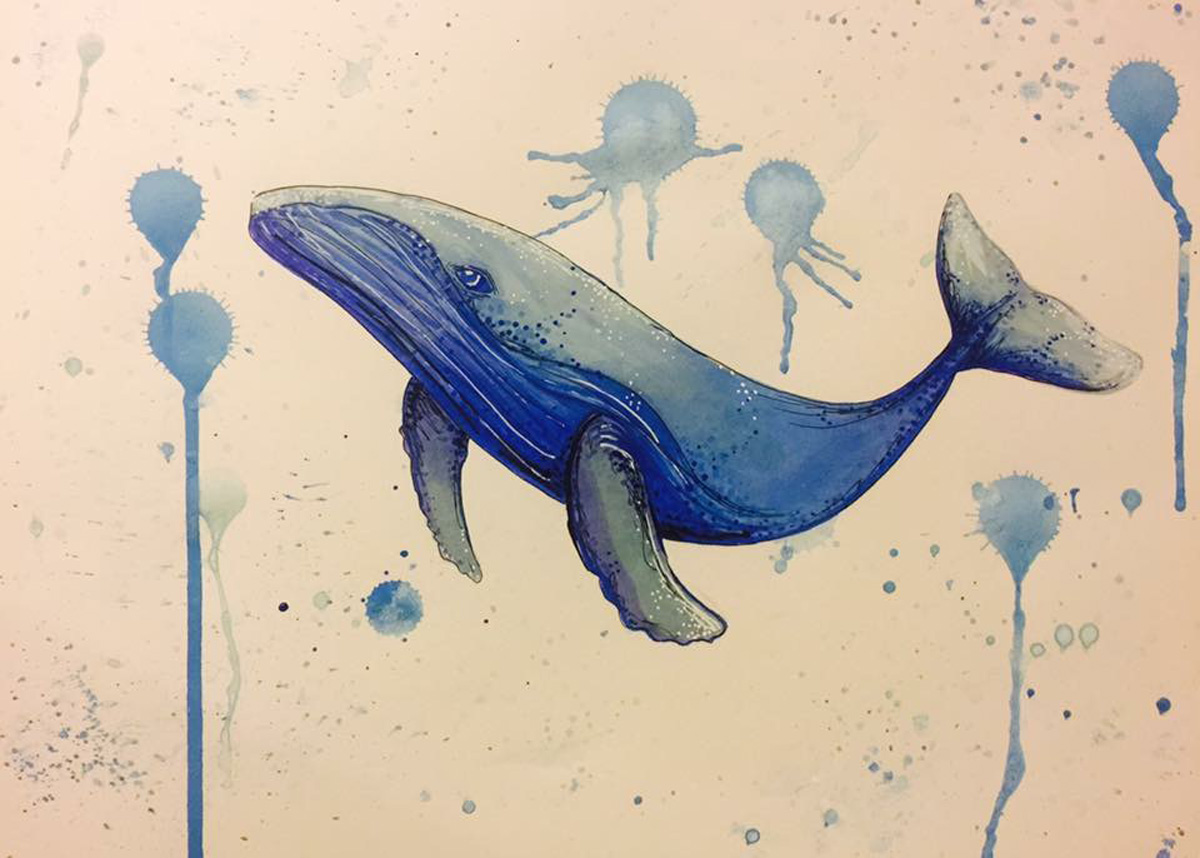Ekphrastic Challenge, June 2019: Artist’s Choice

Image: “Blue Whale” by Nikki Zarate. “Ink Blots” was written by Matt Quinn for Rattle’s Ekphrastic Challenge, June 2019, and selected as the Artist’s Choice.
[download: PDF / JPG]
__________
Matt Quinn
INK BLOTS
Perhaps because there were currents swirling
within the silence, or because a seagull
was shrieking outside the window
or in my head, or because in the end I had to
say something, I said I saw a whale.
Go on, he said. A blue whale, then, I said.
Go on, he said. And because it seemed important
to start at the beginning, I told him of a wolf
that had grown weary of the shallow
society of wolves and had left its pack and drifted
out into the deep ocean. Go on, he said,
and I told him how the salt water had held
the wolf, and how the wolf liked to float, cradled
by the blue, and how its legs transformed
into flippers and its body became huge
and blubbered against the cold, so that the wolf
floated suspended inside that giant body,
just as that body floated in the ocean,
and how the blue water stained that body blue
as if the sea were made of ink. Go on, he said.
In time, I said, it found it could no longer return
to the land, and some nights it sang songs
of its lost pack, and evermore it wandered solitary
in the great ocean. And what else? he asked.
So I told him of how once a blue whale finally
came ashore, how wounded by a harpoon
and desperate to breathe, it beached itself
near Bragar, on the small island of Lewis,
and how they had planted its jaw-bones
as an arch by the side of a road, and had hung
the harpoon from it, as a memorial, perhaps,
or perhaps as a warning. And I told him of ship-strikes,
and how easy it was to become entangled
in the debris of other people’s nets, and also of the noise
their engines make, and how finally their sonar
had drowned the last of my mourning songs.
And these smaller ink blots, he asked,
that surround the whale, what are these? Jellyfish,
I said quickly, not meeting his eye, spineless companions
of the whale, translucent blobs of floating
nothing, drifting along with it. For I knew better
than to tell this man the truth,
that the blue whale had sought refuge
in the basement-womb of the deepest blue ocean,
and that there were depth charges
exploding all around it.
—from Ekphrastic Challenge
June 2019, Artist’s Choice
__________
Comment from the artist, Nikki Zarate: “I enjoyed the back and forth conversation between the story teller and the listener. It was as if I was sitting beside a fire, being told a legend or a fairytale. The poem also did a wonderful job of connecting the sea with the land, through the whale and the wolf. It kept my interest and I wanted more and that rarely happens for me.”





